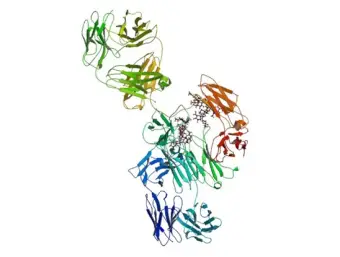Somatropin recombinant API Manufacturers & Suppliers
Find, compare & contact
Filters
Custom request?
Type
Production region
Qualifications
Country of origin
Producer
Produced in:
Established in: 2003
MOQ: -
Employees: 4000+

20+ years’ expertise in API manufacturing, trusted for quality and global compliance.

Listed pharma leader in China, prioritizing transparency and regulatory excellence.

End-to-end integration from R&D to scalable production, delivering cost-efficient solutions.
+ 0
All certificates
Producer
Produced in:
Established in: 2019
MOQ: 1 g
Employees: 10+

Focused on pharmaceutical industry

Reasonable price for the customers

Full service from R&D stage to commercial stage
+ 0
All certificates
How does it work?
You can register for free as long as you are registering on behalf of a legal company related to the pharmaceutical industry
Search in the search bar the product that you’re looking for. We’ll show you an overview of all available suppliers. Use the filters to select the relevant suppliers only
Have you found interesting suppliers? Then it’s time to contact them. Use the send inquiry button and send them a message. You can send for each product, 3 inquiries per week
Suppliers get notified by Pharmaoffer that they’ve received a new inquiry. They will come back to you with their questions, certificates, and offer in the chat on Pharmaoffer. We will send you an email in case of any news
Does the supplier meet your quality and commercial requirements? Then you can place the order. Just follow the steps of our order module
Looking for Somatropin recombinant API 12629-01-5?
- Description:
- Here you will find a list of producers, manufacturers and distributors of Somatropin recombinant. You can filter on certificates such as GMP, FDA, CEP, Written Confirmation and more. Send inquiries for free and get in direct contact with the supplier of your choice.
- API | Excipient name:
- Somatropin recombinant
- Synonyms:
- GH , GH-N , Growth hormone , Pituitary growth hormone , Somatotropin precursor , Somatropin , Somatropin [rDNA origin] , HGH , Human growth hormone , Recombinant HGH
- Cas Number:
- 12629-01-5
- DrugBank number:
- DB00052
- Unique Ingredient Identifier:
- NQX9KB6PCL
About Somatropin recombinant
More information about the use of: Somatotropin. Recombinant human growth hormone (somatotropin) 191 residues, MW kD, synthesized in E. coli.
You can ask the supplier for more technical information about the product.
Somatropin recombinant is a type of Somatropin Agonists
Somatropin agonists are a subcategory of pharmaceutical active pharmaceutical ingredients (APIs) that are designed to mimic the action of the natural human growth hormone, somatropin. These agonists are developed to interact with specific receptors in the body, promoting growth and development.
Somatropin agonists have gained significant attention in the pharmaceutical industry due to their potential applications in various medical conditions. They are primarily used in the treatment of growth disorders, such as growth hormone deficiency in children and adults. By binding to the somatropin receptor, these agonists stimulate the production of insulin-like growth factor-1 (IGF-1), which is responsible for promoting tissue growth and development.
One of the advantages of somatropin agonists is their enhanced stability and bioavailability compared to naturally occurring somatropin. This allows for better control of dosage and consistent therapeutic effects. Furthermore, these agonists can be administered through various routes, including subcutaneous injection, making them convenient for patients.
The development of somatropin agonists involves rigorous research and optimization to ensure their safety and efficacy. Pharmaceutical companies employ advanced techniques, such as recombinant DNA technology, to produce these synthetic analogs. Quality control measures are implemented throughout the manufacturing process to ensure batch-to-batch consistency and adherence to regulatory standards.
In conclusion, somatropin agonists are a valuable subcategory of pharmaceutical APIs used in the treatment of growth disorders. Their ability to mimic the action of somatropin and promote tissue growth makes them a promising therapeutic option for patients in need. Ongoing research and development in this field aim to further enhance the efficacy and safety of somatropin agonists, providing improved treatment options for individuals with growth-related conditions.
Somatropin recombinant (Somatropin Agonists), classified under Hormonal Agents
Hormonal agents are a prominent category of pharmaceutical active pharmaceutical ingredients (APIs) widely used in the medical field. These substances play a crucial role in regulating and modulating hormonal functions within the body. Hormonal agents are designed to mimic or manipulate the effects of naturally occurring hormones, allowing healthcare professionals to treat various endocrine disorders and hormonal imbalances.
Hormonal agents are commonly employed in the treatment of conditions such as hypothyroidism, hyperthyroidism, diabetes, and hormonal cancers. These APIs work by interacting with specific hormone receptors, either by stimulating or inhibiting their activity, to restore the balance of hormones in the body. They can be administered orally, intravenously, or through other routes depending on the specific medication and patient needs.
Pharmaceutical companies employ rigorous manufacturing processes and quality control measures to ensure the purity, potency, and safety of hormonal agent APIs. These APIs are synthesized using chemical or biotechnological methods, often starting from natural hormone sources or through recombinant DNA technology. Stringent regulatory guidelines are in place to guarantee the efficacy and safety of hormonal agent APIs, ensuring that patients receive high-quality medications.
As the demand for hormone-related therapies continues to grow, ongoing research and development efforts focus on enhancing the effectiveness and reducing the side effects of hormonal agent APIs. This includes the exploration of novel delivery systems, advanced formulations, and targeted drug delivery methods. By continuously advancing our understanding and capabilities in hormonal agents, the medical community can improve patient outcomes and quality of life for individuals with hormonal disorders.
Somatropin recombinant manufacturers | traders | suppliers
We have 2 companies offering Somatropin recombinant produced in 0 different countries.
Get in contact with the supplier of your choice:
- Yifan Pharmaceutical Co.,Ltd. from China, product country of origin China
- Apino Pharma Co., Ltd. from China, product country of origin China
Let the supplier know whether you are looking for a product with a specific monograph such as EP (Ph. Eur.), USP, JP, BP or another quality. Or, whether you are looking for hydrochloride (HCl), anhydricum, base, micronisatum or a specific purity.
You can use the filters to find high-quality suppliers. For example, you can select GMP, FDA or ISO certified suppliers. Visit our FAQ page or use the chat box in the corner to get more information about Pharmaoffer.











